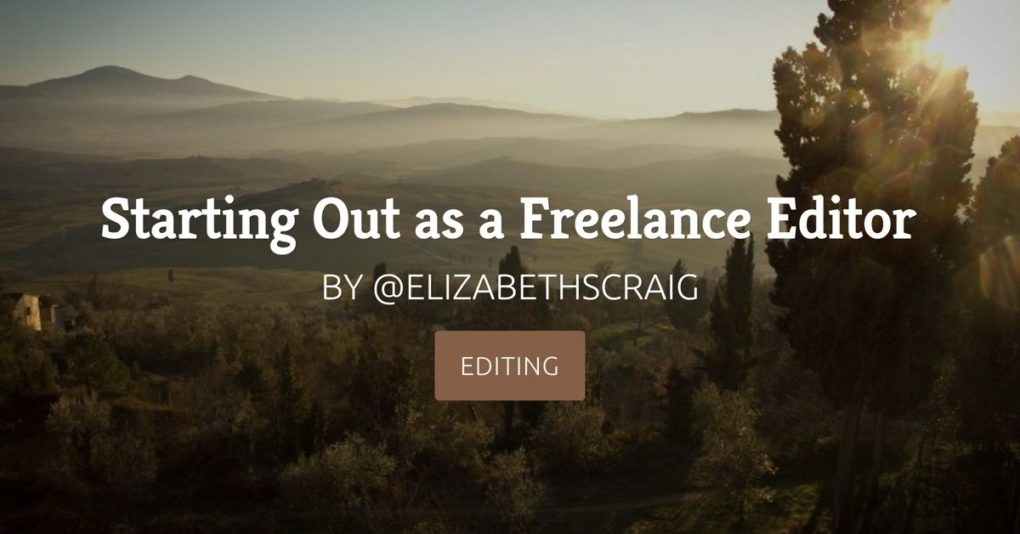September 14, 2018 / Business of Writing / 8 COMMENTS
by Elizabeth S. Craig, @elizabethscraig
This may seem an odd topic for me to blog on. I have never been an editor and I have no aspirations to be a freelance editor. However, I’ve worked with freelance editors for so long and have received so many emails from people interested in becoming editors that I thought I should try to write a post to point folks in the right direction.
To start off, you’ll need a home base online. This can be done relatively inexpensively (or even for free), which might be the way to go, starting out. For info on this, head to industry expert Jane Friedman’s blog. First, her article on whether to go self-hosted or not (self-hosted is not the free option), then her post on setting up a site (which is where she also recommends not starting with self-hosted).
Here you can have information about your services (are you a developmental editor? A line editor? Proofreader? More on the different types of editing in this post on Joel Friedlander’s blog). An example of a freelance editor’s page (she has a huge site, but she has other interests, as well) can be found here. You could put the link to your new site in your email signature.
Endorsements. Until you get them from novelists, you could get some from the people you’ve worked for in the past, if you have a editing on your resume. These endorsements will go on your website and also in your email signature. You may need to start out doing work for a lower rate than you’ll charge later.
Social media. A professional page on Facebook and accounts on Twitter (there are lots of writers on Twitter) and LinkedIn is important. Share posts you’ve written and share posts that others have written, too, as well as networking with writers. Also, many freelance writers get exposure by commenting on writers’ blogs (not pitching…just being there).
Rates. One important thing to know about freelance editing: the rates vary and
should vary, per project. Many freelance editors offer sample edits of 15 pages or so for free. This gives an editor a good idea of the writer’s ability. You can see if the writer writes cleanly or poorly. Some writers are even English as a Second Language and you’ll want a much higher rate for correcting ESL work. A reference for pricing
can be found here.
I think the toughest part is getting the word out and finding writers who need editors. Although social media is something many of us dislike, it can be key in finding clients.
How did you find your freelance editor, if you’re a writer? (For me it was word-of-mouth in a closed forum.) If you’re an editor, how did you connect with clients? Any other tips from freelance editors?
Photo on Visual Hunt

Good tips for those gifted with editing. I’m not one of them though.
Me either!
This is really interesting, Elizabeth. Even for people who may not be interested in becoming editors like this, it’s good to know what those folks do.
They offer such an important service for writers! My own freelance editor is great.
I enjoy beta reading, but I’m not sure I’d be good enough to charge. There are so many rules! I’d be lying if I said I knew them all.
I’m with you, Elizabeth! I wouldn’t feel comfortable charging for it (not sure my skill level is that high for that). I do edit documents for friends and family, but only because they’re short and because I’m doing it for free.
Hi Elizabeth – what I like about this is … that you’ve killed two birds with one stone – ie given us a post, while at the same time have in reserve a ready-made sheet on starting out as a freelance editor … that you can send out without needing to draft one up. Clever! Cheers Hilary
That is very true! Now I can point folks this way. :)